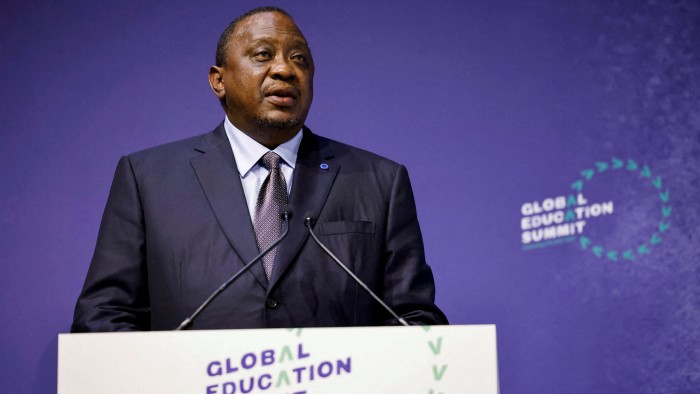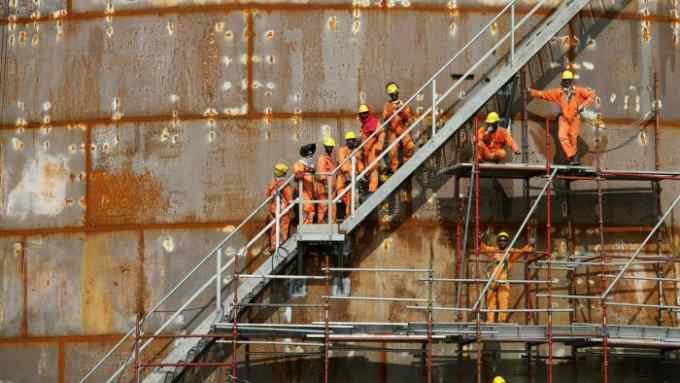Covid-19 can entrench educational inequality — or spur change

Simply sign up to the Education myFT Digest -- delivered directly to your inbox.
Education is central to sustainable development. It increases individual incomes, broadens opportunities for decent employment and drives gender equality, healthy populations, social progress and a peaceful planet.
The Global Education Summit, held in London in July, was a success not just for education but also for multilateralism and international co-operation. Heads of government, corporate leaders, sovereign funds, philanthropists, civil society and educators came together with a keen awareness of the extensive, destabilising and far-reaching effects that coronavirus has had on education systems around the world.
They pledged to find viable, lasting solutions to restore the path towards ensuring “quality education for all”. Now they and their peers around the world must go further to expand their funding and focus on rebuilding vibrant and resilient education systems.
Even before the onset of the pandemic, education systems in most developing countries already faced serious challenges. In 2019, half of 10-year-old learners in these nations could not read or fully comprehend a simple story. This figure is much higher in the poorest countries.
Covid-19 has aggravated the poor learning outcomes and intensified the socio-economic inequalities that hold back learners from poor homes. In most developing countries, it has deepened the challenges for vulnerable learners, including those with disabilities and from economically or politically fragile communities.
Girls have borne the worst of the pandemic. School closures have seen a large increase in the number of school-age pregnancies and early marriages. Many girls did not return when schools reopened.
If the trajectory is not reversed, the UN estimates that pandemic-related disruptions over the next decade will lead to more than 13m child marriages and almost 2m additional cases of female genital mutilation, among other consequences for girls.
Without adequate steps to mitigate this crisis, the pandemic will not only trigger irreversible intergenerational socio-economic regression in much of the world, it will also consign a generation of aspiring and talented girls to lives of poverty and hardship.
While the pandemic has derailed progress towards the UN Global Goal of quality education for all, the disruptions have also opened a window to revolutionise and strengthen education systems. In response to coronavirus, we have seen a rise in innovative solutions using digital technologies that have transformed the way many students learn.
To strengthen traditional classroom learning and give students a richer, more rounded learning experience, we must prioritise these innovations. As governments and world citizens, we can use emerging solutions to enrol millions of children back in school, while transforming systems so that everyone can have access to quality, equitable and technology-enabled education.
I was immensely proud to co-lead the fourth replenishment campaign of the Global Partnership for Education (GPE) with Boris Johnson, the UK prime minister. Recognising that most funding for education comes from domestic sources, I contacted heads of state from countries that have been GPE beneficiaries to endorse a call to action. This committed them to maintaining domestic education budgets at pre-Covid-19 levels and increasing them towards the global benchmark of 20 per cent of annual government spending.
In addition, the Kenyatta Declaration calls on all signatories to focus these resources on the most vulnerable and marginalised children, schools and regions. To date, 19 heads of state have signed up, which translates to $196bn in protected education financing over the next five years.
Our goal is to ensure that all 70 GPE developing country partners sign up, which will mark an unprecedented endorsement of education at the highest political level. Kenya is leading by example by committing more than a quarter of the total government budget to education.
The summit also provided a platform to announce a record $4bn in donor pledges and commitments. Companies, foundations and development banks further boosted this amount with $1.1bn in innovative co-financing.
The success of the replenishment campaign is a starting point for strengthening education systems, and a spearhead for sustainable recovery from the pandemic. Maintaining education at the heart of the international agenda will ensure that the world succeeds in “building back better”.
It sets us on a course to realise the promise of education, not just for a few privileged learners, but for all children. Prioritising education is an important stepping stone towards levelling the playing field and enabling developing countries to become globally competitive in all economic sectors.
Our dream of global peace, shared prosperity, sustainable development, environmental protection and a brighter future for all humankind can only become a reality by ensuring high-quality education for all. I urge my fellow leaders to raise our hands for education.
Uhuru Kenyatta is the president of Kenya

Comments